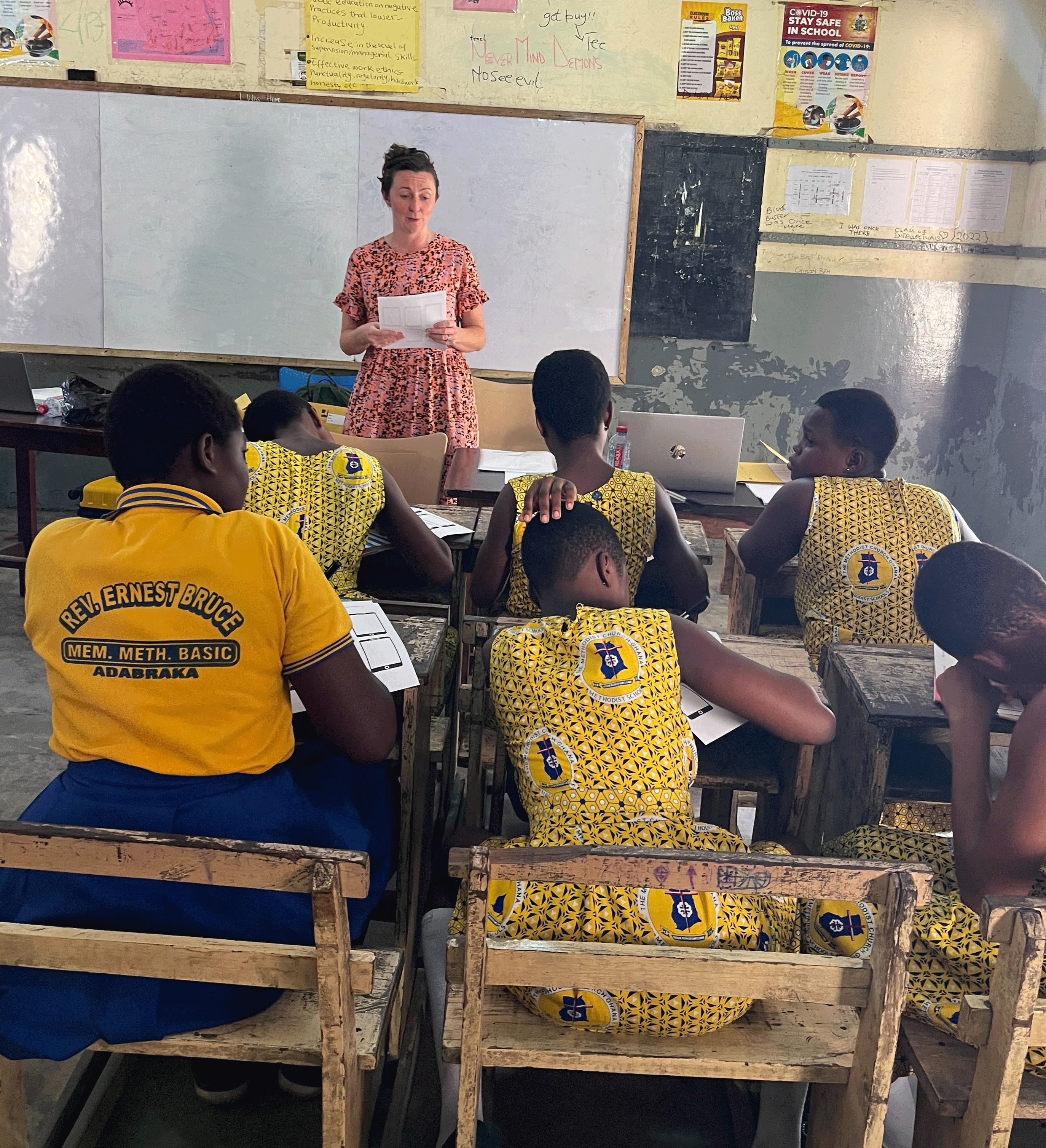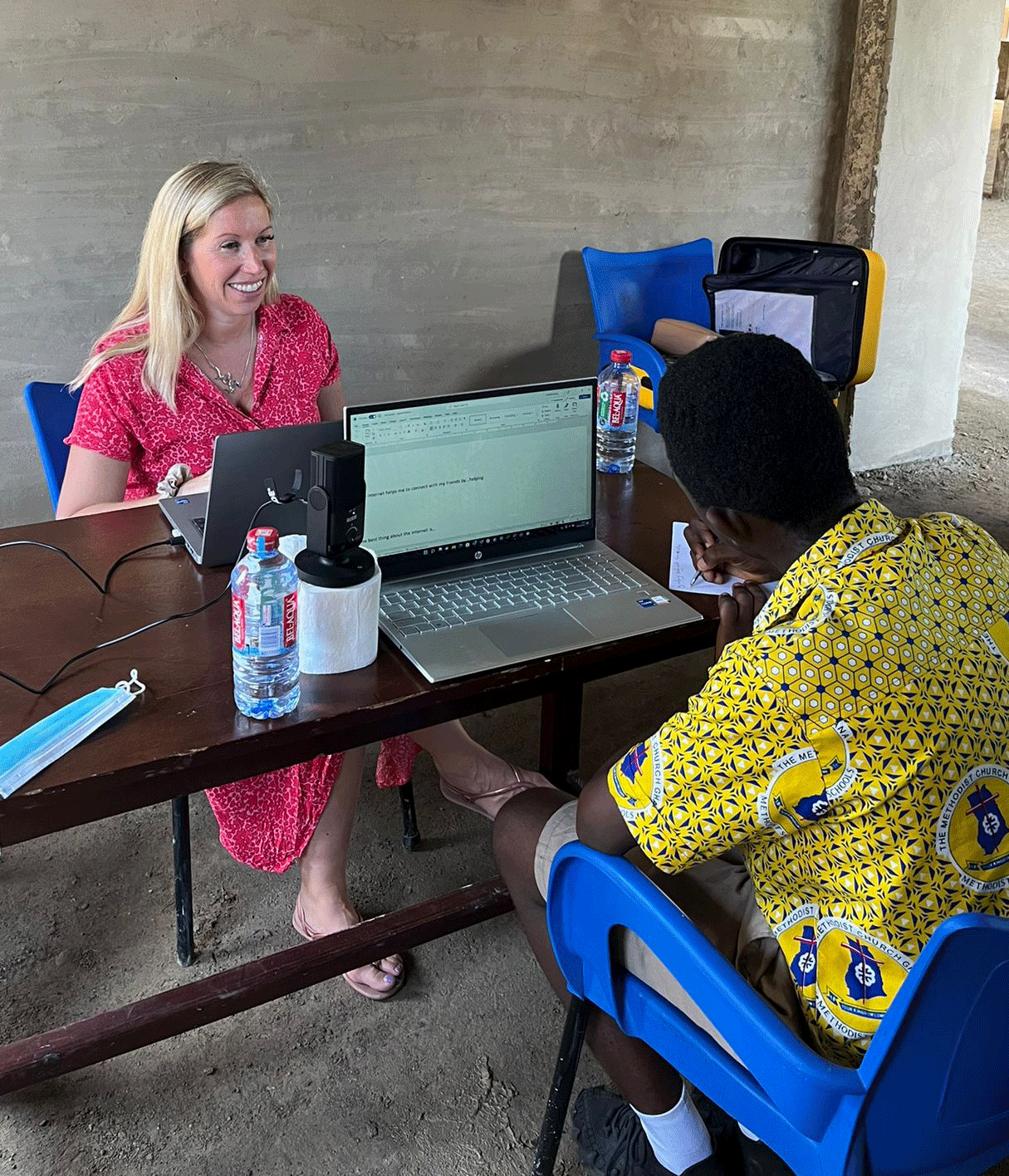As children across the world increasingly go to social media for advice and information, we believe it has become essential to engage and educate effectively in these spaces. This can be done through partnership with creators who are able to share authentic and credible advice.
Ghana – an online protection campaign case study
Watch Helen King present this research at the PIER 2024 Child protection conference or see an excerpt from the presentation below.
“Our research conducted in 2023 on behalf of the WeProtect Global Alliance revealed the vulnerability of Ghanian children to CSE – and the absence of basic educational information or advice (either at home, school or in their communities) to help them counter the actions of offenders. The Ghanaian children we talked to in this study described the prevalence of sexual exploitation in their communities facilitated by the online environment and the pressure to produce sexual material for money. They talked about children being exploited in this way in their communities by both international and local perpetrators, – and described persistent demands for sexual images and video. They also talked to us about not knowing how to respond to these pressures or where to get advice and support because of a culture of silence around the issues in their families and communities.”
“Children told us that they are currently often turning to social media to learn about these kinds of issues because of silence in their communities and shame. But unhelpfully, the advice they find on social media is often unreliable and can be misogynistic, unsafe, or highly sexualised. However, children told us they do want to receive preventative and protective information in these spaces, but they want it to be credible and safe. “
“To address this issue, we started a project in 2023 to deliver online safety interventions to protect children from CSE using creators and influencers in the spaces children are using and spending time. We set up the project so that could evaluate its impact and share key learning with others.
We started with research with young people, their parents and those who care for them, as well as research with NGO’s working in these spaces and community leaders. We wanted to know how much they knew about the topics we were trying to educate on, how they had received messaging before, what they would already do and also to know which influencers they engage with and listen to. To achieve this, we ran focus groups and surveys. ”


“Our campaign focussed on the issue of self-generated sexual images and videos. The payment for this footage was reinforced as being a real issue for young people. They also talked about the need to earn money and that they have few resistance strategies – that they need support in how to say no and who to safely tell.
During these focus groups, we discovered that many children followed dancer influencers and watched their social media posts repeatedly to learn each dance. Therefore, we selected popular dancers on TikTok and Instagram to integrate safety messaging, co-created with children, into their posts. These engaging posts educated children on staying safe online, where to seek help if asked for child sexual abuse material, empowered them to say no to adults or peers requesting such images, and fostered a supportive community within the comment sections.
We chose to collaborate with dancer influencers from one of Ghana’s leading dance groups, Dance With Purpose, featuring Richael, King Nature, Liya and Demzy.”
“We had a huge number of views – 2.1million of our campaign videos in one month alongside large numbers of likes and shares. We had a hashtag which we saw trending in this time too – and we saw that other influencers who we had not originally been engaged started to make their own posts in response to the campaign and sharing these, so that we saw the messaging go viral. This meant even more young people saw and heard the message in an intensive way over a short period. ”
“To understand impact properly we also ran focus groups and surveys to get underneath the online metrics. We did this with groups of children across the country – and saw that a huge 68% of them had seen the videos before we talked to them. “
“We wanted to see if the campaign had started to change their knowledge and understanding. 95% of the children we surveyed felt like they had more control over their own online protection after watching the videos and 98% agreed that the campaign taught them information that they will use to stay safer. 100% felt that they were more able to block and report people who made them feel uncomfortable after watching the videos.
The focus groups gave us important feedback too – including that the children felt they would now block people who asked for naked photos and educate their friends. Importantly, the focus groups showed us that young people felt that the campaign was allowing them to talk about the issues without the shame they felt before. They felt empowered to discuss it with their peer group and talk about strategies that the influencers had suggested to protect themselves.”